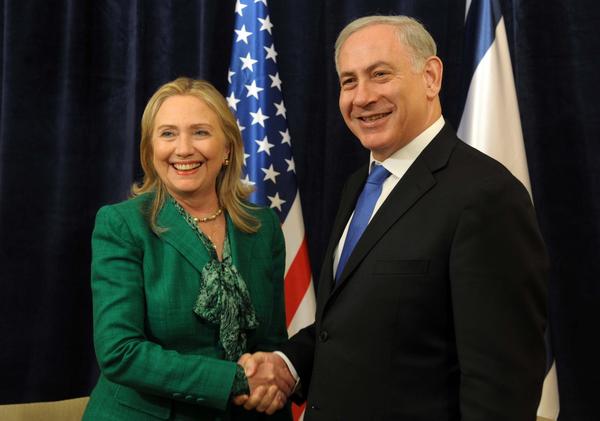Israeli President Shimon Peres and Prime Minister Benjamin Netanyahu commented Saturday on statements made by Palestinian President Mahmoud Abbas, in which he specified the borders of a two state solution and vowed to prevent a third intifada.
 While Peres praised Abbas’ statements, Netanyahu condemned the Palestinian president and said his words were meaningless. The contrast illustrated how far right and rejectionist Netanyahu and his Likud Party are.
While Peres praised Abbas’ statements, Netanyahu condemned the Palestinian president and said his words were meaningless. The contrast illustrated how far right and rejectionist Netanyahu and his Likud Party are.Netanyahu’s office said in a statement that the invitation to meet with Abbas without preconditions is still open, although this is a cop out meant to appear like a willingness to negotiate for a peace settlement. But Netanyahu’s actions – like unprecedented settlement activity and explicitly rejecting the two-state deal – are really what have blocked negotiations.
In an interview, Abbas appeared to reject the right of return for Palestinian refugees, saying that although he is a refugee from Safed, he does not intend to return to the city as a resident.
“Palestine for me is the 1967 borders with East Jerusalem as the capital, this is Palestine, I am a refugee, I live in Ramallah, the West Bank and Gaza is Palestine, everything else is Israel.”
President Shimon Peres praised Abbas’s statements. “His brave words prove that Abu Mazen (Abbas) is a real partner for peace,” Peres said.
“Abbas’ statements should be taken seriously,” he said. “They are in line with the positions of most Israelis, who support the two-state solution.”
But Netanyahu, who is a shoe-in for an upcoming reelection, is unlikely to accept Abbas’s support for a two-state solution, one which adheres to an overwhelming international consensus. Netanyahu’s Likud Party Charter declares Jewish settlement in the West Bank and Gaza as “the realization of Zionist values” and describes the whole of the West Bank and Jerusalem as belonging to Israel.


